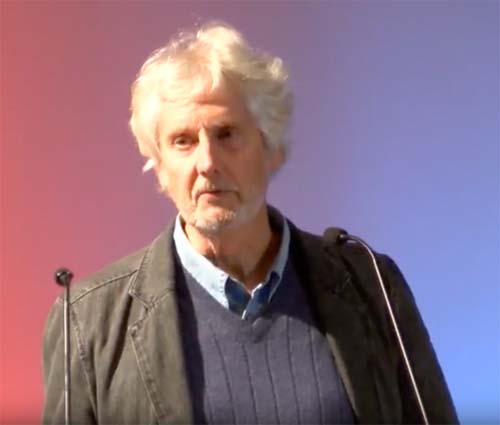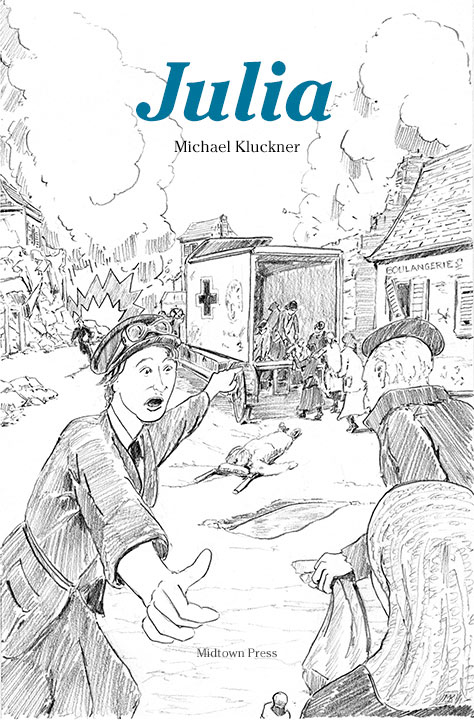
Contact me Go to home page
Julia
(The Life & Times of
an Extraordinary Woman)
*
Michael Kluckner

|
A novelist, journalist, socialite, botanist, explorer, and World War I ambulance driver, Julia Henshaw was a unique and colourful personality. This graphic biography follows her extraordinary life from Montreal to Vancouver, from the Rocky Mountains to England, and from the mining towns of BC's Kootenays to the battlefields of France and Belgium. Her strongly expressed views of women's roles and voting rights, of racial and class issues, and of Canada's relationship to Great Britain and the USA are an illuminating contrast with the values of her contemporaries, and with society today. 132 pages, black and white, 7 5/8 x 10 3/4
inches, soft cover
Published by Midtown Press, Vancouver, 2018 ISBN 978-1-988242-20-0 Suggested retail: $19.95 Available from all bookstores (real ones and on-line, too). But because independents don't or can't keep titles on their shelves, the quickest and most convenient way to get the book may be Chapters-Indigo online. Where to Buy It? 1) Preferably, your independent bookstore. In Vancouver, go to: • Massy Books, 229 East Georgia, 604-721-4405 • Iron Dog Books, 2671 East Hastings Street, 604-215-8807 • Hager Books, 2176 West 41st, 604-263-9412 • Book Warehouse Main Street, 4118 Main Street, 604-879-7737 ...but Chapters/Indigo stores have it too. 2) In Canada, you can order a signed copy from me using your bank's e-payment system (Interac). Click on this link for how to do it (this is not a bank or credit card link). • LAUNCH at Massy Books, 229 East Georgia Street in Vancouver's Chinatown, May 15, 2018 at 7 pm • VanCAF, the comic arts festival, at the Roundhouse Community Centre on Saturday and Sunday May 19 and 20. I will be there for much of the weekend at the Midtown Press table. • A brief talk and signing at Black Bond Books in Ladner, June 9, 10:30–12:30. ...and then later at ... • Rossland Museum & Discovery Centre, June 26, 7 pm. • Workshop on graphic novels at Selkirk College, Nelson • Nelson Public Library, June 28th at 7 pm • Bookland, Vernon, June 29, 3-5 • Salmon Arm Public Library, June 30th, 2 pm. • WORD Vancouver, September 30th, 3:25 pm •Owl's Nest Bookstore, Calgary, October 15th, 7 pm • Radium Library, October 16th, 6:30 pm • Whyte Museum of the Canadian Rockies, Banff, October 17th, 2 pm • Friends of the BC Archives, Victoria, October 21st. • Vancouver Historical Society, Museum of Vancouver, October 25th, 7:30 pm. • Vancouver Public Library main branch, November 1, 7 pm. • Langley Heritage Society's Douglas Day banquet, Fort Langley Community Hall, November 16, 2018 • West Vancouver Historical Society, West Vancouver Seniors Activity Centre, March 20, 2019, 7 pm. REVIEWS and other notices are posted below. (My Facebook page will have up-to-date posts about events although I will put major ones on the "newstuff" page on this site; more permanent items such as reviews will be posted below) Julia mixes the graphic novel genre with a lot of digital visual material, including newspaper facsimiles and some historic photographs, to fill in the blanks in the record of Julia Henshaw's eventful life. It also has me (the author) as a recurring character – not at all unusual as witnessed by Art Spiegelman in Maus and the narrator in Persepolis, to name a couple of famous examples. The mixing of different media is something I first saw in Shigeru Mizuki's Showa history of Japan; I've used Photoshop Elements to bend and distort newspaper pages, for example. 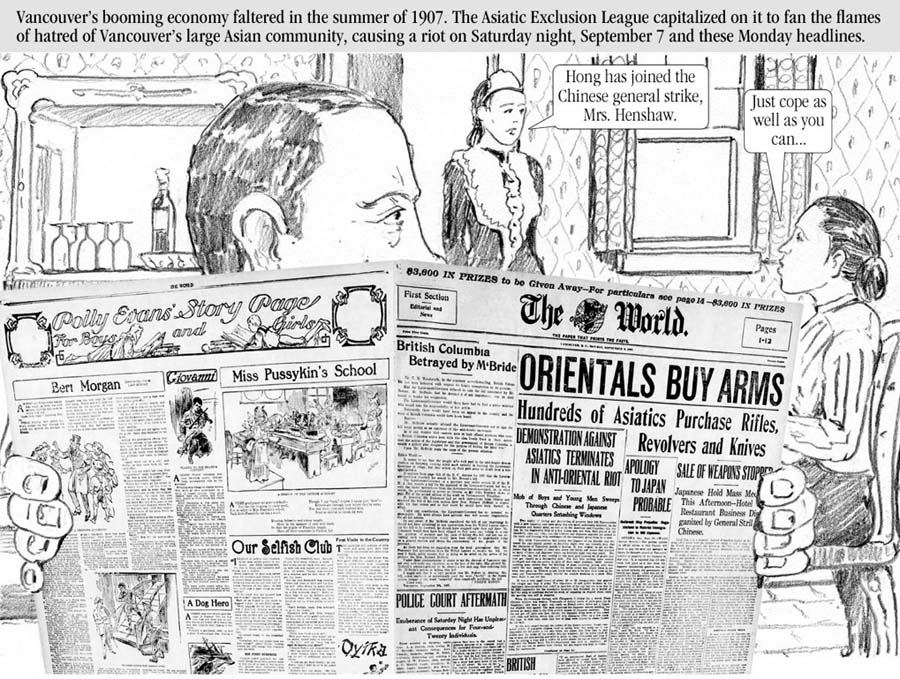 The high-resolution newspaper facsimiles, and
the 480-dpi printing of them in the graphic novel itself,
means they can actually be read with a magnifying glass. This
is "history getting its voice back."
|
The story begins in 1983 when I discovered Julia's "playboy" husband Charles Henshaw.
As it turned out, he was almost a non-entity compared with his talented and ambitious wife.

Julia was born in Durham, England in 1868. Her father owned a very successful carpet factory and was a gentleman angler and outdoorsman.

Julia moved to Montreal at age 17 to live with her oldest sister and was soon courted by the 26-year-old Charles Henshaw....

They moved to Vancouver in 1890, when the city was only four years old ...

Julia became a public figure, giving lectures and writing theatre and music reviews in 1898 under the nom de plume Julian Durham...

She wrote two novels, the second of which – Why Not, Sweetheart? (1901) – is partly set in the Kootenays region of British Columbia...
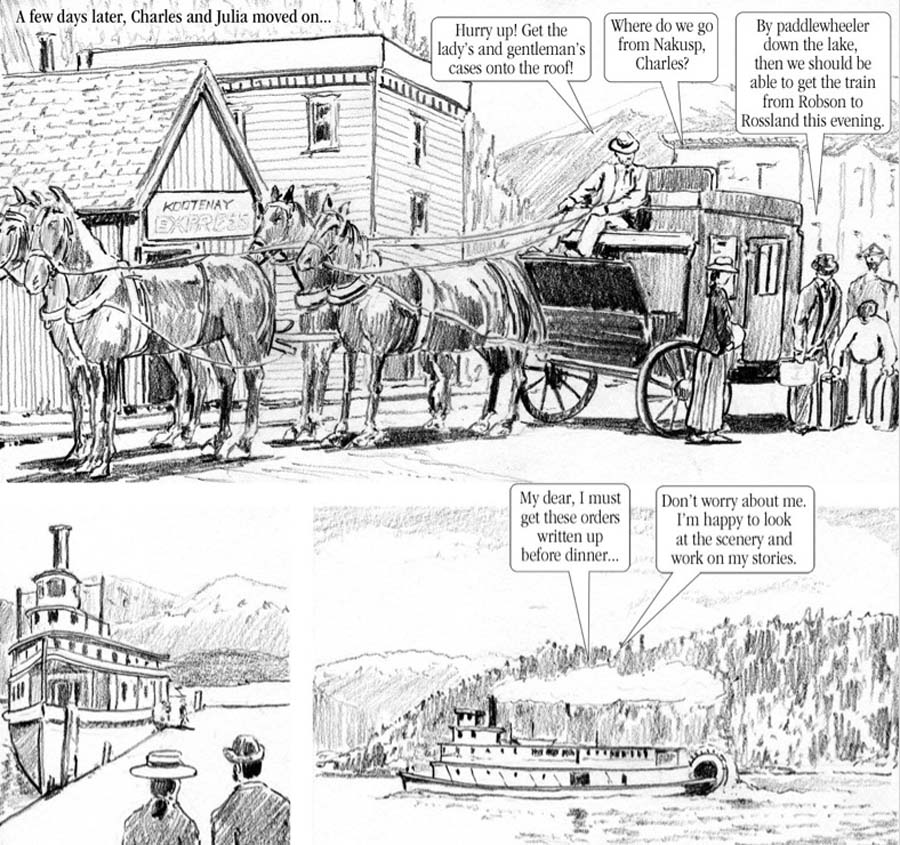
From 1901–10, as "Gwen," she wrote a two-page "From a Woman's Point of View" section each Sunday in the Vancouver News-Advertiser.
Her columns included political and arts commentary and book reviews as well as some society chatter and cooking and fashion advice ...
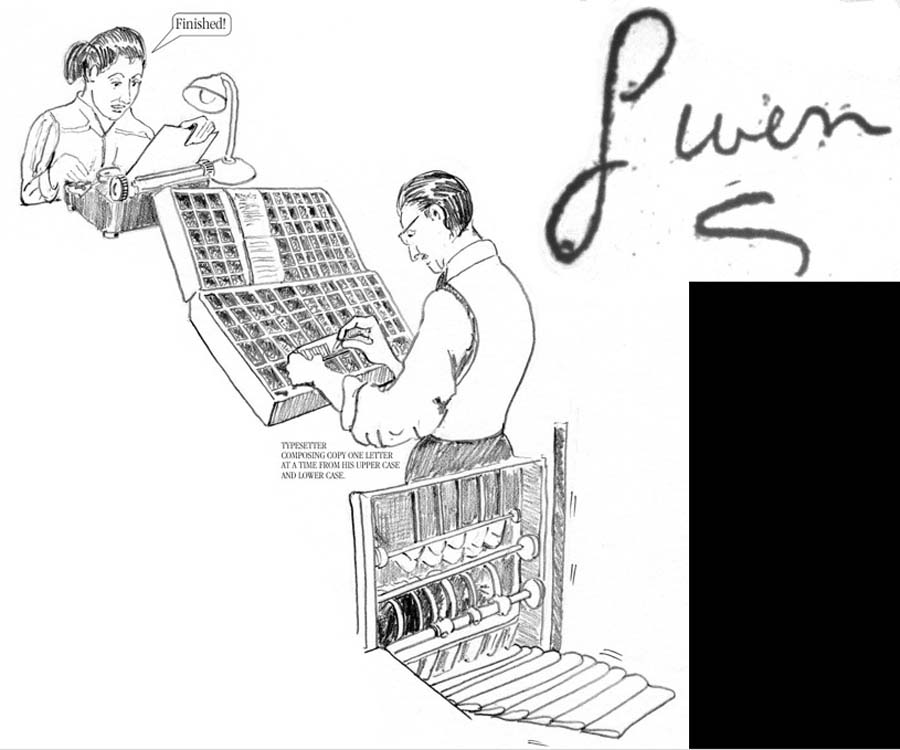
During the first decade of the 20th century, she wrote numerous articles for Canadian and British magazines on her mountain adventures...
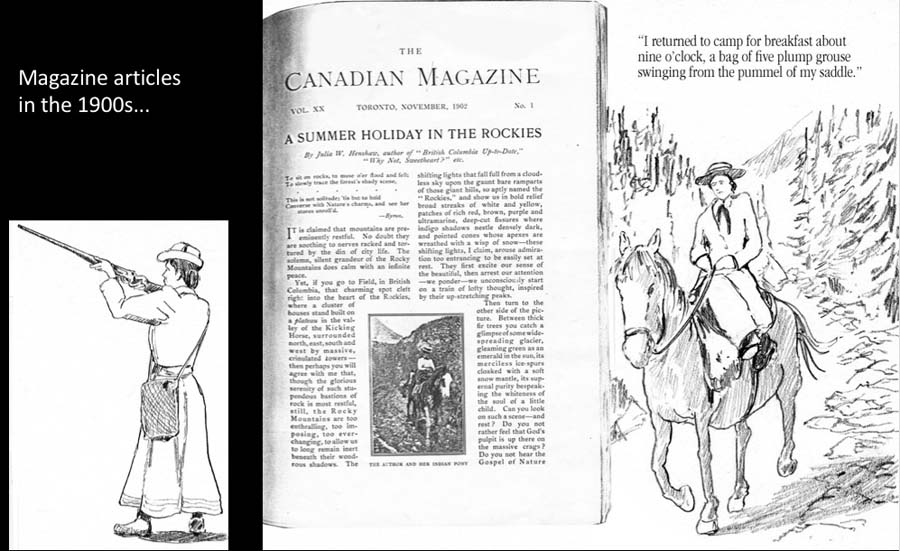
Her magnum opus, the first book on alpine botany in western North America, came out in 1906 and was reprinted several times...
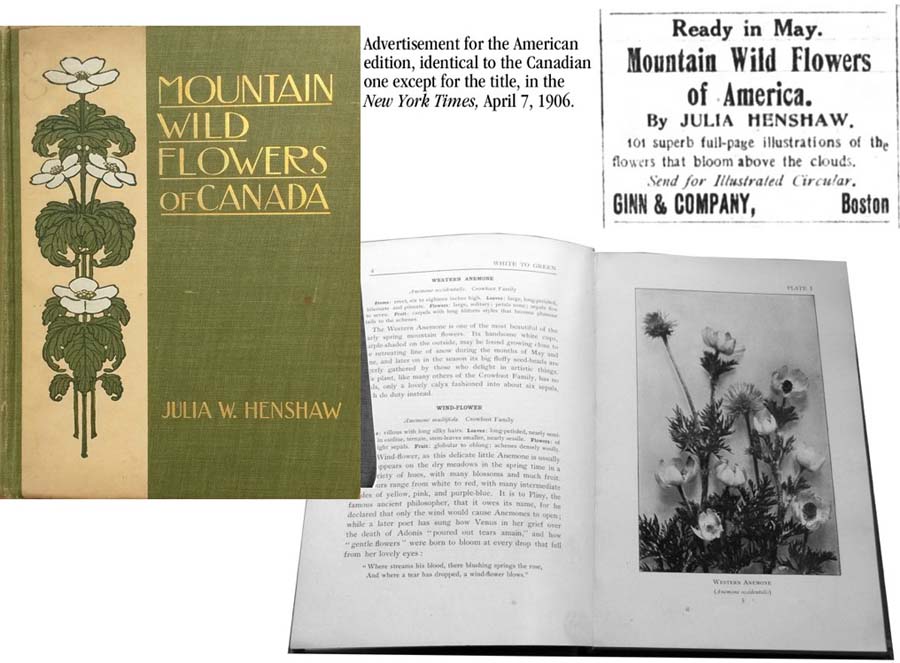
During WWI, she became an unconventional Canadian army captain, lecturing and raising funds in Canada and the US from 1915–17...
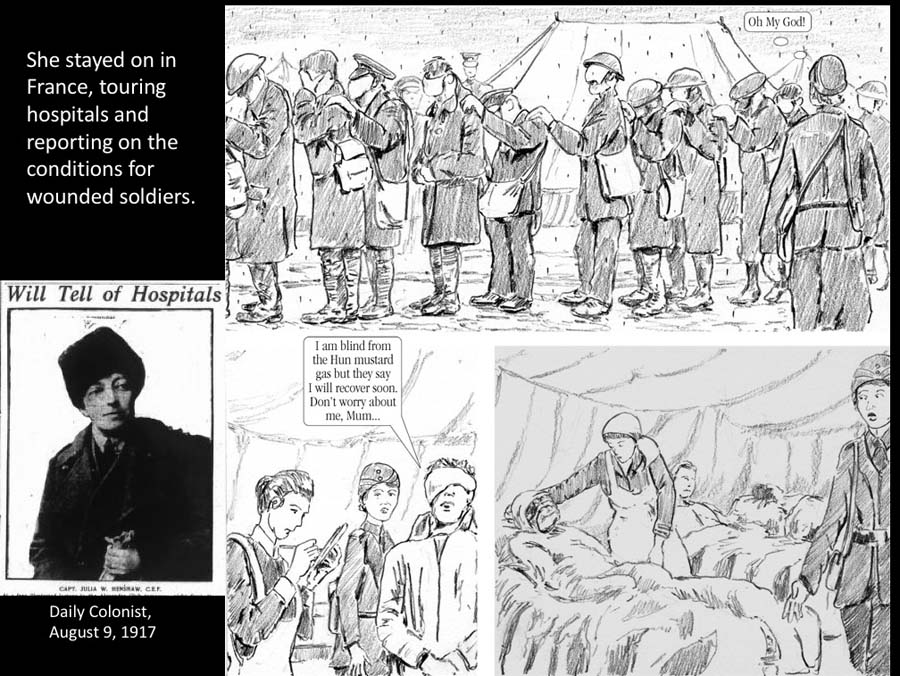
... and in 1918 commanded a British unit of the French Red Cross – women who evacuated and cared for villagers terrorized by the war.
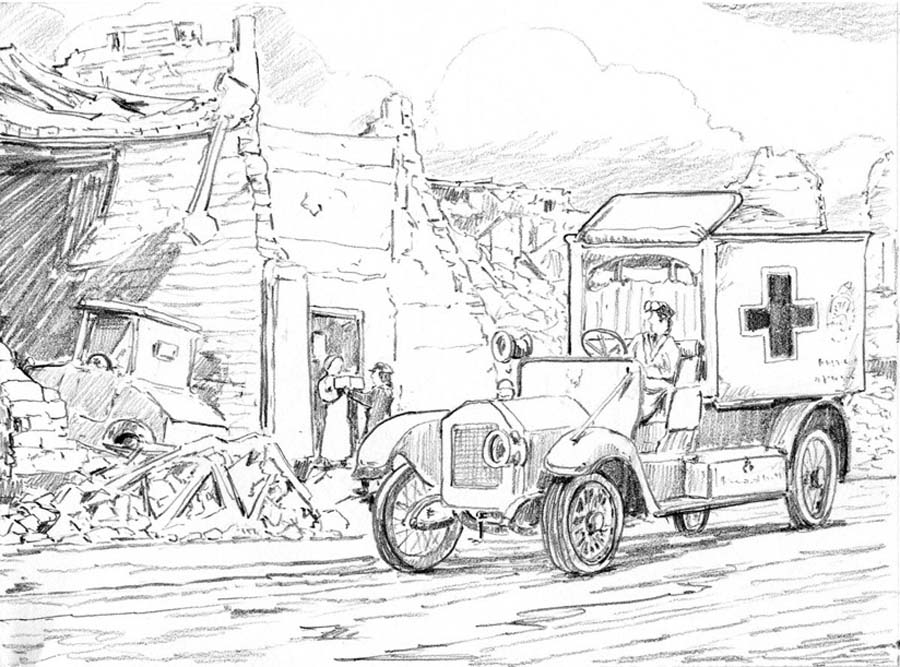
She won the Croix de guerre, one of a number of honours she received for her wartime service.
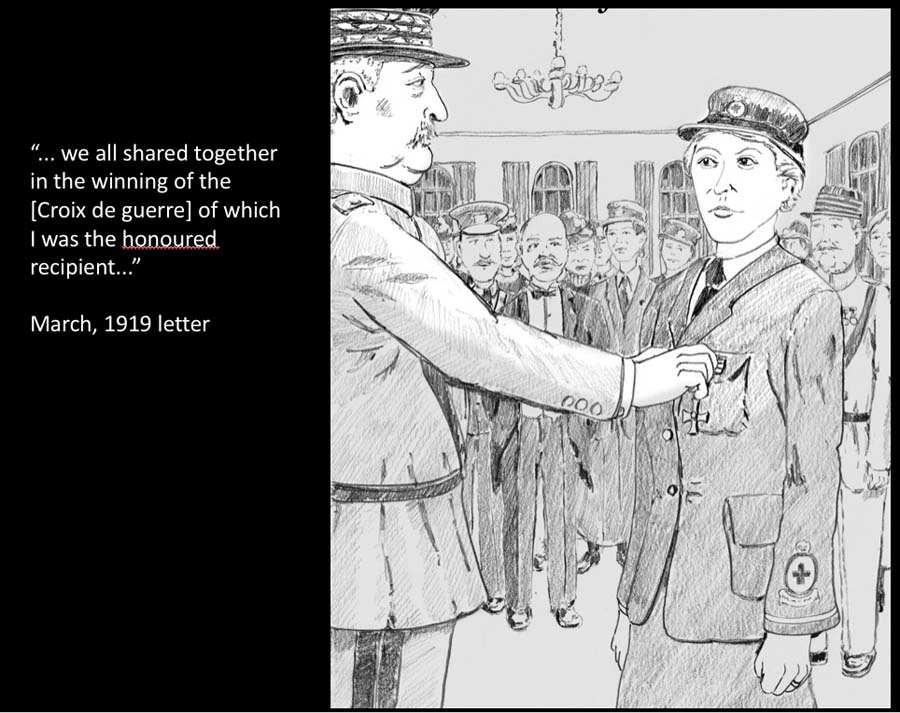
The story continues through until her death in 1937, touching on all the important issues of the day:
race, social class, women's rights and roles.
Contains supplementary notes, a bibliography and an index.
Reviews
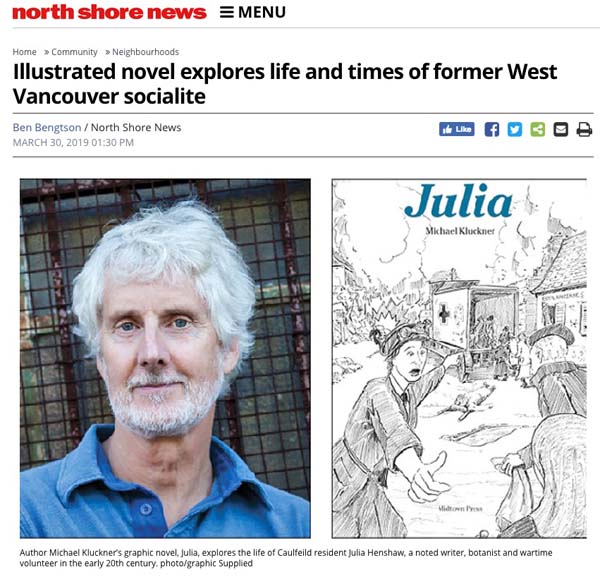
|
Like all of us, she contained multitudes. It was 1983 and Michael Kluckner, history writer, artist and president of the Vancouver Historical Society, was busy researching for his latest book, Vancouver: The Way It Was, when he first encountered Julia Henshaw. “I was looking for interesting characters that I could write short biographies on, the sort of thing that would sit in the margin of a big book that was concerned with larger heritage,” Kluckner tells the North Shore News. He came across a reference to a man named Charles Henshaw, nicknamed “Afternoon Tea Charlie” for his merrymaking sensibilities and general joie de vivre, who had infamously imported Parisian bathing suits for a celebratory soiree only for partygoers to soon discover that the suits “disintegrated in water,” according to Kluckner, who notes: “What a scandal that would have been!” “You think of how buttoned down the society was in 1910 – I thought this guy seemed like a really interesting character and so I went looking for him, and couldn’t really find anything at all,” says Kluckner. “But there were numerous references to his wife Julia, who seemed to be an entirely different, very serious, very motivated, driven, quite modern woman.” For the last 30-plus years, Kluckner slowly chipped away researching Julia Henshaw’s life. He combed through old newspaper clippings, scanned records where he could find them, and pored over primary source materials from books that Henshaw had penned herself. His collected findings are presented in the biographical graphic novel, Julia, which came out last year. Last week, he gave a lecture on the life and adventures of Henshaw to a packed room during the West Vancouver Historical Society’s March meeting. A noted author, lecturer, botanist, explorer, socialite, and wartime volunteer, Henshaw and her husband established their home in West Vancouver’s Caulfeild neighbourhood in the early 1910s, making them among “the very early purchasers of land out in Caulfeild,” according to Kluckner. “And Caulfeild itself is kind of a quirky community – the little winding roads, and Piccadilly is the name of a road out there. It’s very picturesque,” he says. Asked what Kluckner found so interesting about Henshaw when it came to the early annals of Vancouver history, he says her proficiency in writing, exploring, journalism, botany, as well as her overall “high-powered public persona,” made her an excellent example of a person living here 120 years ago who had broad interests and a general air of sophistication. Her garden on Piccadilly North, for example, was well known in the 1920s and ’30s, and was said to be one of the first on the West Coast to feature alpine plants, likely harvested during one of her many outdoor excursions. Perhaps her greatest feat, explains Kluckner, was volunteering abroad during the First World War, where she was awarded the Croix de Guerre for her bravery in helping to evacuate people under shell fire and aerial bombardment. She wasn’t without her faults, too. Many of her viewpoints regarding women’s suffrage and imperialism would be considered regressive or racist today, explains Kluckner. It’s a notion he wrestled with while writing the graphic novel – a form he likens to doing “poor man’s filmmaking; effectively they’re elaborate storyboards” – but reasoned he didn’t want to insert his 21st century judgments into the story of what was ultimately a fascinating and complex woman, full of dichotomies. “On one hand she was making a living as a woman, she was writing under her own name when she was still in her 20s as opposed to writing under her husband’s name or that type of thing. But then, the weirdness of it with her being anti-suffrage – she goes against the major trend in Canadian women’s history at that period of women wanting to vote,” says Kluckner. He even inserted himself into the narrative as a character who interacts with Henshaw’s ghost in order to address these issues. “As her ghost says at the end: ‘Your society is just a bunch of hypocrites.’ You push all this stuff out of sight in a way that couldn’t happen in her day – getting clothes made in Bangladesh, getting your food grown by Mexican labourers and trucked up here,” muses Kluckner. “She is just so complex.” |
****
Below: one of the 12 best books of 2018 for history readers according to "Read Local BC".
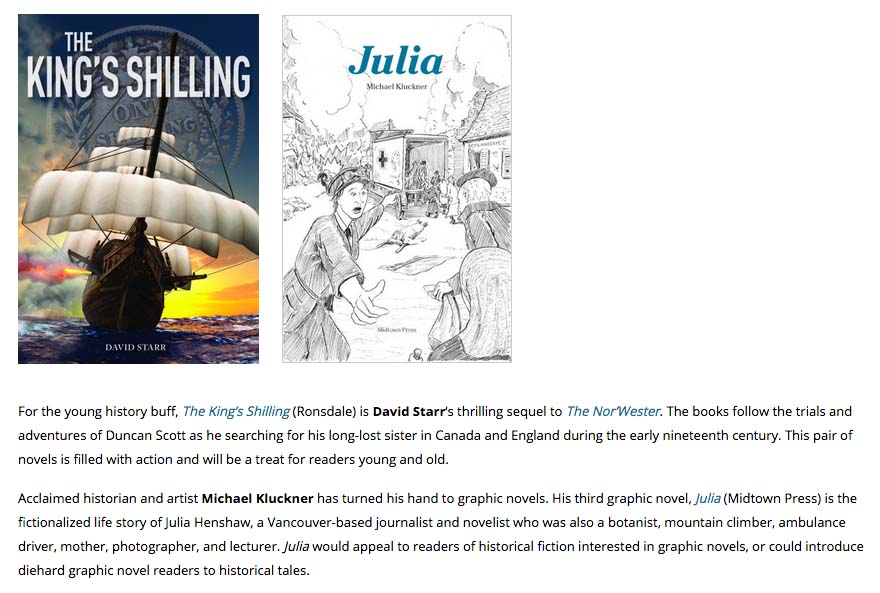
***
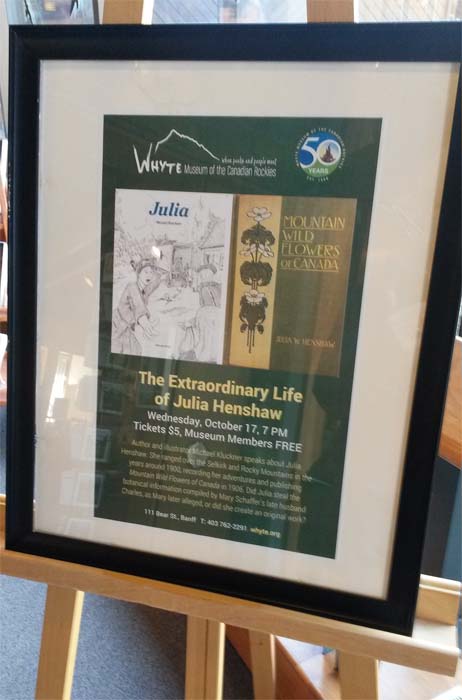
Good events at Banff and Victoria in October, 2018...
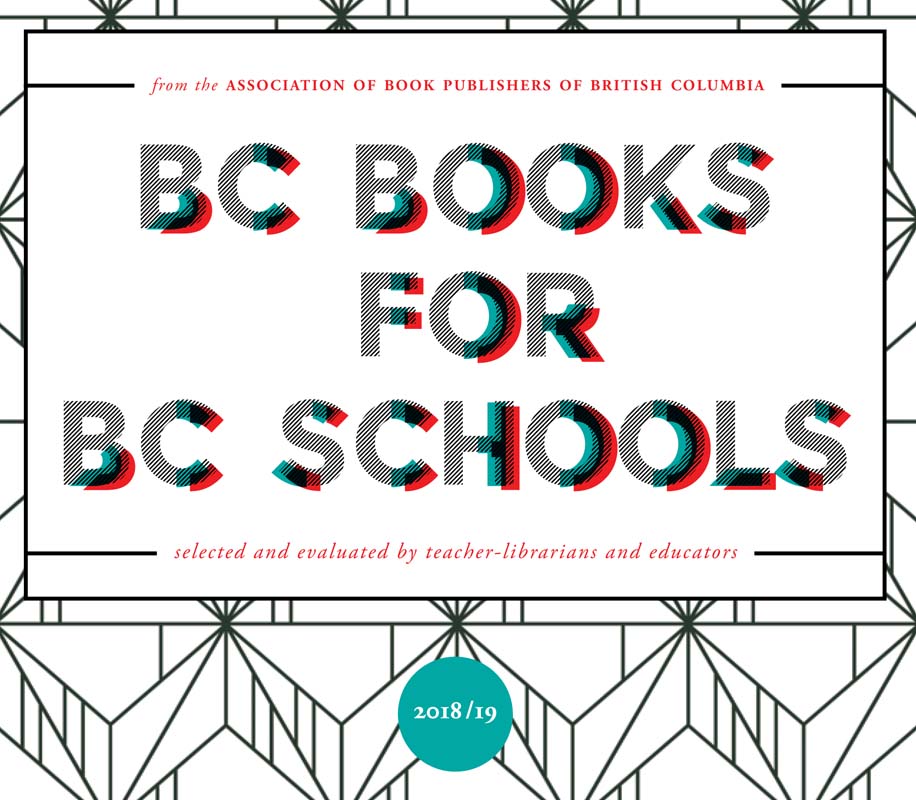
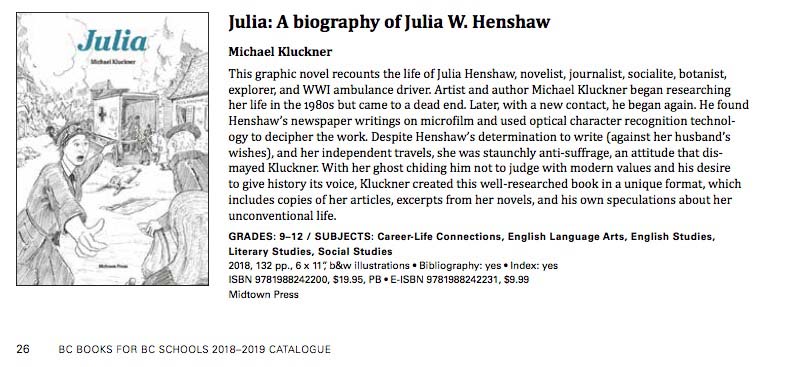
***
In the Ormsby Review, July 8, 2018:
"Julia Henshaw’s forceful voice had been stilled through the years but comes out loud and clear in this delightful work."
The full review here.
***
In the Kütne Reader, the blog of Greg Nesteroff, July 5, 2018
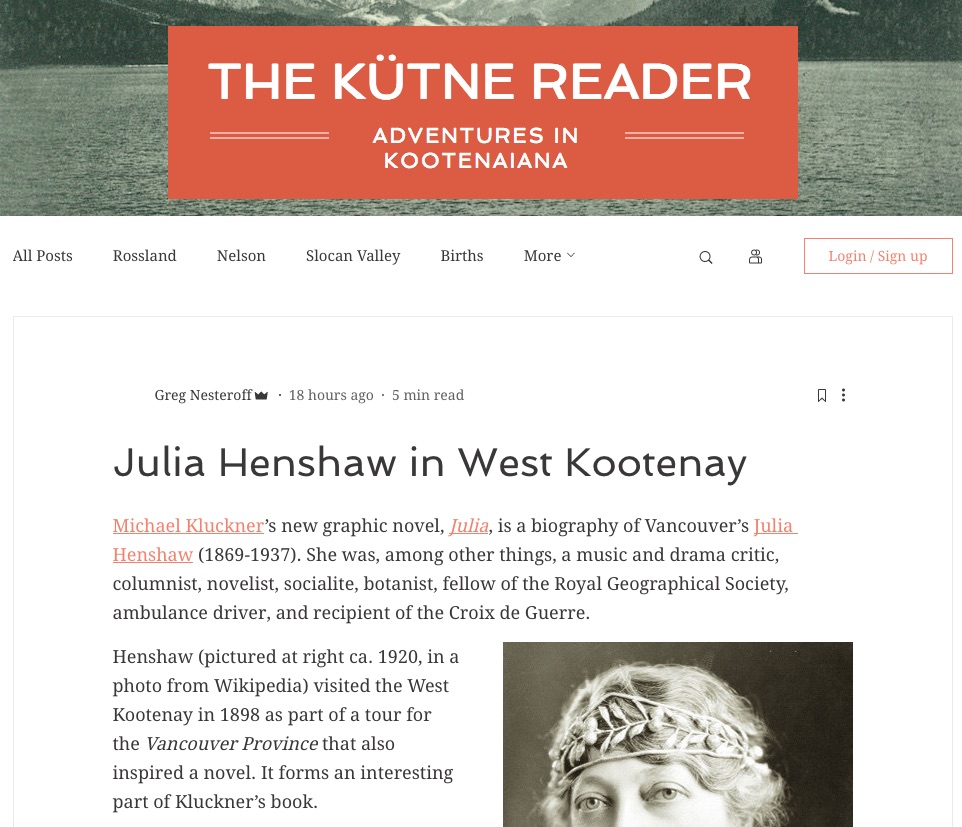
Read the entire post here.
***
Vernon Morning Star, June 27, 2018
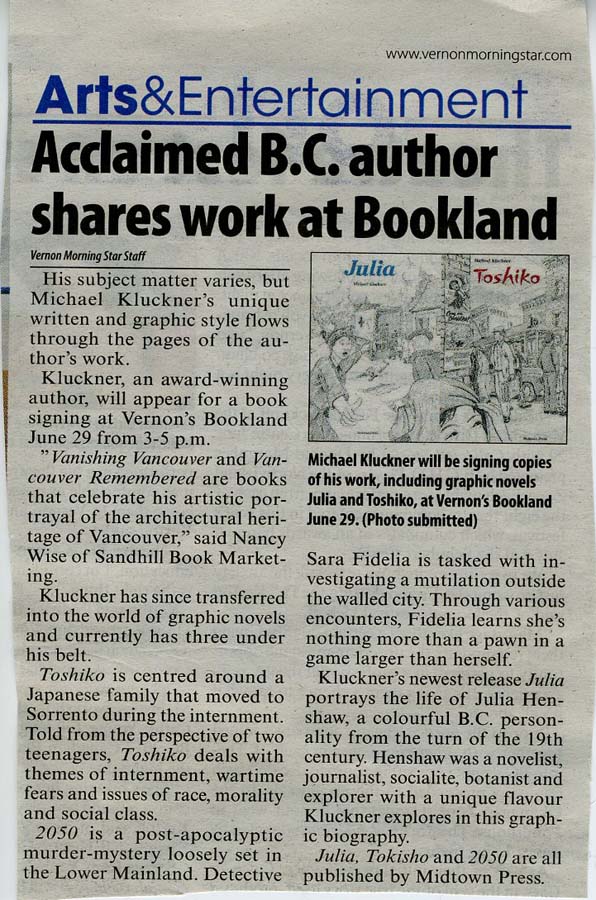
A descriptive look at the book in BC History magazine, Summer 2018
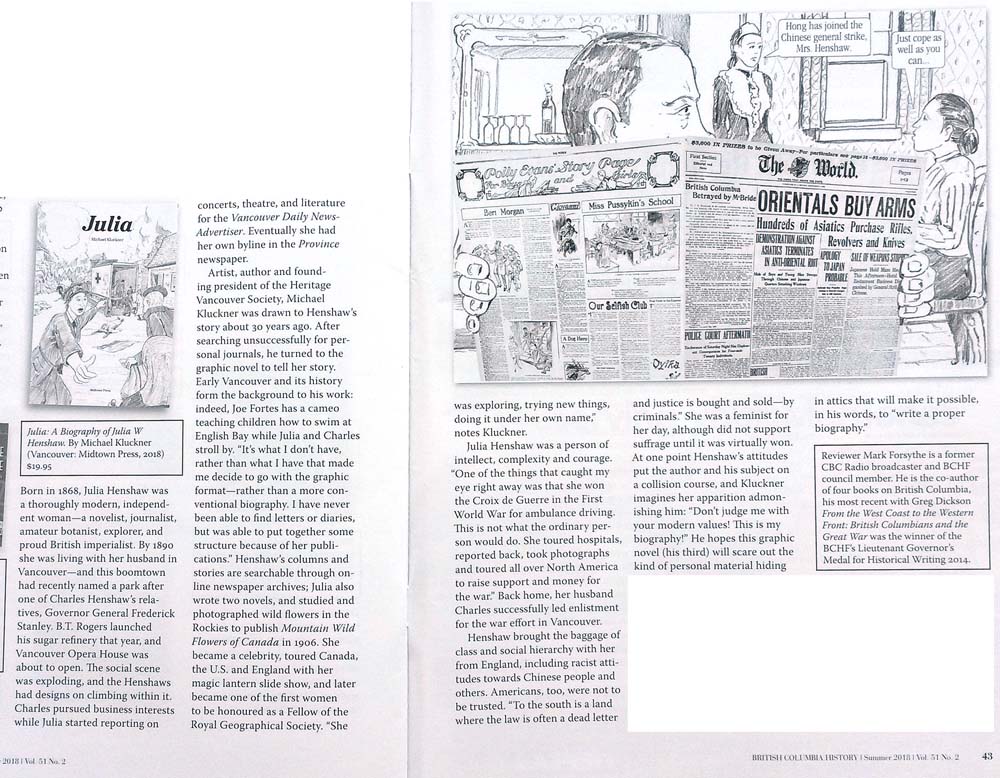
From "Friday A.M.," Salmon Arm BC, June 8, 2018
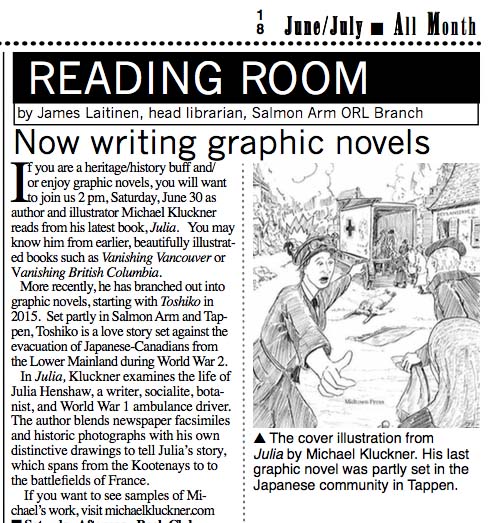
Contact me Go to home page
Artwork & text © Michael Kluckner, 2018

